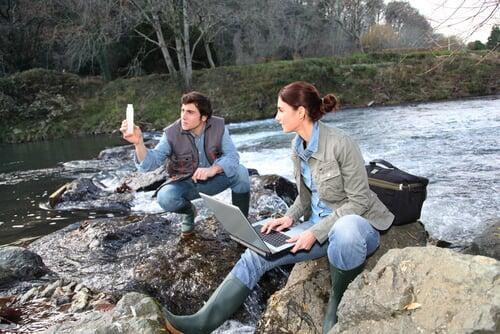Ecosystems and the Human Factor — Introduction
Environmental Scientist
Environmental scientists and specialists use their knowledge of the natural sciences to protect the environment and human health. They may clean up polluted areas, advise policy makers, or work with industry to reduce waste.
Environmental scientists and specialists work in offices and laboratories. Some spend time in the field gathering data and monitoring environmental conditions firsthand. Most environmental scientists and specialists work full time.
Employment of environmental scientists and specialists is projected to grow 15 percent from 2012 to 2022, faster than the average for all occupations. Increased public interest in the hazards facing the environment, as well as the increasing demands placed on the environment by population growth, is expected to spur demand for environmental scientists and specialists.
Source: Bureau of Labor Statistics


Your Mission
Air pollution, water pollution, deforestation, endangered species, climate change—the list of environmental issues goes on and on. Protecting the environment is an environmental scientist's goal when he or she goes to work each day. If you have a love for the outdoors and a desire to protect the oceans, this might be the right career for you.
Environmental scientists gather data from samples of air, soil, water, food, and other sources. Back in the laboratory, they look for patterns and relationships in the data to identify and assess threats to the environment. Then, they communicate their results in writing or at a conference or meeting. Sometimes, they make recommendations for programs or regulations aimed at reducing or eliminating threats to the environment.
In this project, you will design and conduct a survey to collect data about human behaviors, health, and the environment. Then, you will analyze the data and look for patterns of association among the variables. Your final product will be a report for the client who funded your research.

